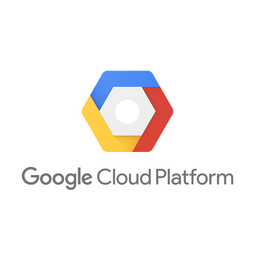公司规模
Large Corporate
地区
- Europe
国家
- Germany
产品
- Vertex AI
- BigQuery
- Google Cloud
技术栈
- Temporal Fusion Transformer Model
- Google Workflows
- Microservice Architecture
实施规模
- Enterprise-wide Deployment
影响指标
- Cost Savings
- Customer Satisfaction
- Productivity Improvements
技术
- 分析与建模 - 预测分析
- 平台即服务 (PaaS) - 数据管理平台
- 应用基础设施与中间件 - 事件驱动型应用
适用行业
- 零售
- 消费品
适用功能
- 物流运输
- 商业运营
用例
- 需求计划与预测
- 预测性维护
- 供应链可见性(SCV)
服务
- 云规划/设计/实施服务
- 数据科学服务
- 系统集成
关于客户
Tchibo is one of the leading retailers in Europe, with its origins in roasting and selling coffee. It is one of the largest coffee roasters globally and has expanded its business model to include coffee-making equipment and a wide range of non-food items and services, such as communications. Tchibo operates 900 stores and has over 11,300 employees worldwide, with a presence in more than 24,300 retail depots. The company has evolved into one of the biggest e-commerce businesses in Europe, offering a frequently updated range of products and services. Tchibo's operations are supported by a wide logistics distribution network, and it brings in around 3,000 new products annually, with some campaigns planned a year in advance.
挑战
Tchibo, a leading retailer in Europe, faced challenges in managing supply and demand for its wide range of non-food items, which include clothing and homeware. The company's business model involves fast-changing weekly sales phases and multi-channel distribution, which requires a robust logistics distribution network. With around 3,000 new products introduced each year and some campaigns planned a year in advance, optimizing logistics processes was critical for cost savings and fulfilling customer service expectations. Tchibo's previous data analytics solution was manually maintained and lacked the forecast quality needed to manage its operations effectively. The company sought a state-of-the-art platform for developing data solutions with machine learning and advanced analytics to improve its demand forecasting capabilities.
解决方案
Tchibo partnered with Google Cloud to build an online demand forecasting service known as DEMON, which accurately predicts demand for the online sales channel. The service uses a temporal fusion transformer model (TFT) on Google Cloud for time series forecasting, relying on an event-driven microservice architecture. The model training and production are separated, and the models, versions, and experiments are centrally managed and easily deployable. DEMON helps Tchibo manage its warehouse supplies and reduce the time spent by operations teams on logistics. The forecast covers 84 days for each item, and the entire process is scheduled and orchestrated by Google Workflows. Forecast results are stored and integrated into subsequent IT systems, such as ERP and allocation, to automate warehouse replenishment. The platform generates over six million optimized predictions a day, ensuring Tchibo has the right level of products to meet customer demand in a timely and cost-effective manner.
运营影响
数量效益

Case Study missing?
Start adding your own!
Register with your work email and create a new case study profile for your business.
相关案例.
.png)
Case Study
Improving Vending Machine Profitability with the Internet of Things (IoT)
The vending industry is undergoing a sea change, taking advantage of new technologies to go beyond just delivering snacks to creating a new retail location. Intelligent vending machines can be found in many public locations as well as company facilities, selling different types of goods and services, including even computer accessories, gold bars, tickets, and office supplies. With increasing sophistication, they may also provide time- and location-based data pertaining to sales, inventory, and customer preferences. But at the end of the day, vending machine operators know greater profitability is driven by higher sales and lower operating costs.

Case Study
Improving Production Line Efficiency with Ethernet Micro RTU Controller
Moxa was asked to provide a connectivity solution for one of the world's leading cosmetics companies. This multinational corporation, with retail presence in 130 countries, 23 global braches, and over 66,000 employees, sought to improve the efficiency of their production process by migrating from manual monitoring to an automatic productivity monitoring system. The production line was being monitored by ABB Real-TPI, a factory information system that offers data collection and analysis to improve plant efficiency. Due to software limitations, the customer needed an OPC server and a corresponding I/O solution to collect data from additional sensor devices for the Real-TPI system. The goal is to enable the factory information system to more thoroughly collect data from every corner of the production line. This will improve its ability to measure Overall Equipment Effectiveness (OEE) and translate into increased production efficiencies. System Requirements • Instant status updates while still consuming minimal bandwidth to relieve strain on limited factory networks • Interoperable with ABB Real-TPI • Small form factor appropriate for deployment where space is scarce • Remote software management and configuration to simplify operations

Case Study
Digital Retail Security Solutions
Sennco wanted to help its retail customers increase sales and profits by developing an innovative alarm system as opposed to conventional connected alarms that are permanently tethered to display products. These traditional security systems were cumbersome and intrusive to the customer shopping experience. Additionally, they provided no useful data or analytics.

Case Study
How Sirqul’s IoT Platform is Crafting Carrefour’s New In-Store Experiences
Carrefour Taiwan’s goal is to be completely digital by end of 2018. Out-dated manual methods for analysis and assumptions limited Carrefour’s ability to change the customer experience and were void of real-time decision-making capabilities. Rather than relying solely on sales data, assumptions, and disparate systems, Carrefour Taiwan’s CEO led an initiative to find a connected IoT solution that could give the team the ability to make real-time changes and more informed decisions. Prior to implementing, Carrefour struggled to address their conversion rates and did not have the proper insights into the customer decision-making process nor how to make an immediate impact without losing customer confidence.









